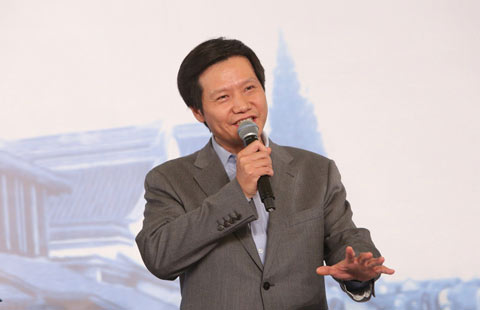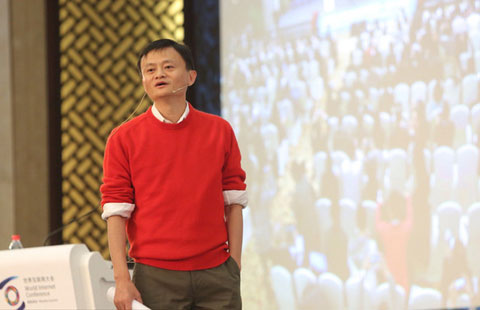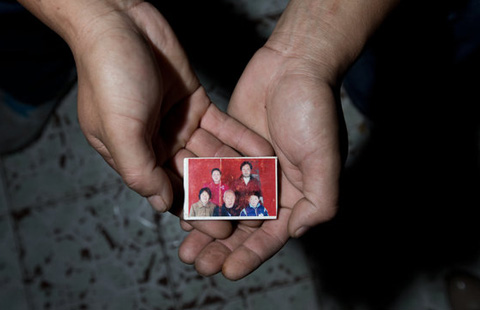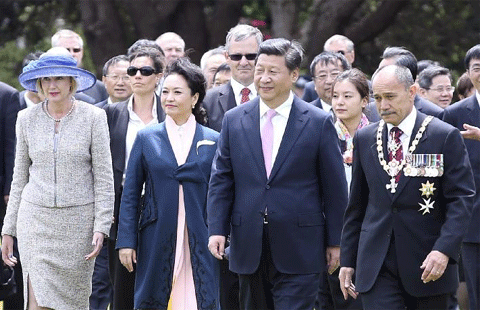Authorities clean up terrorism info online
Updated: 2014-11-21 07:37
By Cao Yin in Wuzhen, Zhejiang(China Daily)
|
||||||||
Cybersecurity officials seek greater international cooperation in effort
Online information related to terrorism has dropped sharply since the nation's crackdown began early this year, a senior public security official said at the World Internet Conference on Thursday.
"It's rare to see content relating to terrorism, including audio and video, on our websites. The information that is hard to remove online comes from overseas," said Gu Jianguo, director of the Ministry of Public Security's Cybersecurity and Internet Protection Department.
Gu said mobile devices are a major channel for communicating terrorism-related information, and such content was found in many terrorists' cellphones during previous investigations.
"Smartphone applications are sometimes used as a platform for terrorists to spread information about extreme religions and jihad," Gu said.
Although police have cleaned up most terrorism-related videos, audio clips and messages on the country's websites, Gu said the problem has not been rooted out yet.
"We found some videos and information made overseas or on foreign websites, so we had to ask for help from other countries and Web companies such as Google and Twitter," he said.
But the process is slow "because the overseas websites take some time to check and verify the problematic information that we pointed out, and sometimes they have different opinions from ours," he said.
Countering the spread of terrorism with enhanced international cooperation is necessary, he added.
Raymond Choo, an associate professor at the school of information technology and mathematical sciences at University of South Australia, said that almost everyone uses mobile phones to send e-mails, log on to social networks and have online chats. Lots of information is collected by applications on the phones, while some even track users' physical locations.
"In other words, some apps know more about us than our family members do," he said.
Bruce McConnell, senior vice-president of the EastWest Institute, an international not-for-profit agency focusing on international conflict resolution, said many people are easily convinced by online claims, and terrorism-related information is no exception.
He said governments should publish positive information online telling people not to believe what they read from terrorists.
As governments discover terrorism-related material online, they can block it. But sometimes terrorists have cross-border interactions, which may put some of their material out of reach. International cooperation against terrorism should be improved, he said.
But he said that cooperation of countries can be difficult to achieve. It can even be a problem between law enforcement entities in the same country. For example, ordinary police officers in the United States, agents of the FBI and officers of the US Department of Homeland Security do not necessarily trust each other, let alone get various countries to cooperate, he said.
He suggested that people should report clues about terrorism information to public security organs. He added that "the use of online channels makes it easier for law enforcement officers to track potential terrorists, since traces of their activities show up".
caoyin@chinadaily.com.cn
(China Daily 11/21/2014 page5)

 Chinese lantern festival is coming to California
Chinese lantern festival is coming to California
 Early start to family life
Early start to family life
 IT titans at WIC excited about future
IT titans at WIC excited about future
 Photos reveal China scenes in the 1930s
Photos reveal China scenes in the 1930s
 Culture Insider: Popular gifts in past decades
Culture Insider: Popular gifts in past decades
 Jack Ma shares tips at Internet summit
Jack Ma shares tips at Internet summit
 Painful search for reunion
Painful search for reunion
 President Xi attends welcoming ceremony in Wellington, New Zealand
President Xi attends welcoming ceremony in Wellington, New Zealand
Most Viewed
Editor's Picks

|

|

|

|

|

|
Today's Top News
Chinese lantern festival is coming to California
Cookstove technology key in fighting pollution
Chinese supercomputer still top-ranked
Lesson in Chinese history
Obama takes executive action on immigration
Deng Long: New York supermarket king
China wants its voice
heard in cyberspace
New Zealand welcomes Xi
US Weekly

|

|







